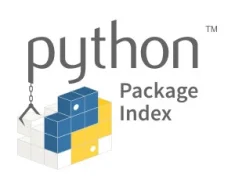Explanation for the choice of comparators {6b}
Patients in the control group will be prescribed their first dose of FSH by the clinician in accordance with standard clinical practice.
Both participating centers adhere to a uniform clinical practice protocol, ensuring consistency in patient treatment and data collection across the trial. In both participating centers, eligible patients will undergo controlled ovarian stimulation, which can be induced with either recombinant FSH (Gonal®, Merck-Serono, Spain; Bemfola®, Gedeon Richter Iberica, Spain) or highly purified human menopausal gonadotropin or hMG (Menopur®, Ferring, Spain; Meriofert®; IBSA; Spain). The first dose of FSH, administered on the second day of the menstrual cycle, is routinely determined by expert physicians for specific patients depending on their age, ovarian reserve markers (AMH levels, AFC), and BMI. Pituitary inhibition will be performed with a GnRH antagonist (Orgalutran®, Organon, Netherlands), and ovulation will be triggered when \(\ge\) 3 follicles of \(\ge\) 17 mm diameter are observed, using 250 mcg of choriogonadotropin alfa (Ovitrelle®; Merck-Serono, Spain) or 0.3 mg of Triptorelin (Decapeptyl®, Ipsen Pharma, France) in cases with a risk of OHSS. Following oocyte retrieval, the sperm sample will be prepared for conventional IVF and/or ICSI. Fertilized oocytes will be cultured in vitro and transferred either fresh or frozen. The preferred clinical strategy is single embryo transfer on day 5 of embryonic development, although double embryo transfer and/or day 3 embryo transfer may be performed in specific cases.
Intervention description {11a}
Patients in the intervention arm will be prescribed the first dose of FSH by IDoser that will take into account the age of the patient, BMI, AFC, and AMH. These data will be retrieved from the patient’s clinical file after their first visit to the clinic, after providing the patient with informed consent documentation.
Criteria for discontinuing or modifying allocated interventions {11b}
Participants can withdraw from the study at any time and for any reason or no reason. The reason for withdrawal will be recorded if patients choose to disclose this information. Failure to administer the allocated FSH dose and discontinuation of IVF/ICSI for medical reasons will also result in withdrawal. Participants will be informed immediately regarding their withdrawal from the trial, if either an error in dose administration is detected or for a medical reason. If an error in FSH administration or medical reason is detected, the participant’s treatment will be interrupted or allowed to continue based on the clinical judgment of the healthcare provider. The data of withdrawn patients obtained during their participation in the study will be included in the study analysis. Withdrawn patients will not be replaced.
Strategies to improve adherence to interventions {11c}
To ensure adherence to the prescribed intervention, specifically the administration of the initial dose of FSH, a designated study nurse will oversee and verify the correct dosing for each patient. Post-intervention, the treatment process will proceed as per routine clinical practice, without additional interventions made by the study team. The research team will ensure that the patient has adequate follow-up post-intervention in order to retrieve all relevant outcome data. This follow-up is in line with the standard care protocol for all IVF/ICSI patients, encompassing post-OPU medical visits, daily communication with the IVF laboratory team about the progress of in vitro culture, scheduling of the embryo transfer (whether fresh or frozen), and monitoring of any subsequent pregnancy. All relevant data will be tracked and recorded in the electronic medical records as part of routine clinical practice.
Relevant concomitant care permitted or prohibited during the trial {11d}
Outside of first FSH dose allocation, the COS and IVF/ICSI treatments will be under control of the assigned clinician of the participant, as per routine practice.
Provisions for post-trial care {30}
Care post-trial will follow routine practice and will be controlled by the assigned clinician for each participant.
In accordance with the Spanish legislation regarding clinical trials with medicines (Real Decreto 223/2004 6th of July), the sponsor of the study will subscribe an insurance covering the sponsor, investigator, collaborators, and center. This will cover any contingencies in the event of deleterious consequences for participants.
Outcomes {12}
The primary efficacy criterion will be the number of mature, MII oocytes retrieved at OPU. This treatment outcome is the closest to the intervention and has a clear impact on IVF/ICSI cycle success. Secondary efficacy endpoints will include cycle cancelations (due to poor response or in the event that no mature oocytes are retrieved), OHSS risk, clinical pregnancy, and live birth per first transfer.
The following variables will be analyzed:
Participant timeline {13}
Participant schedule for enrollment, interventions, assessments, and trial relevant visits can be visualized in Table 1.
A detailed description of the timepoints reflected in the figure is as follows:
-
\(-t_1\): First appointment with the clinician where information on IVF/ICSI treatment is relayed to the patient. Information on the trial is communicated to the patient, and informed consent documentation is handed over to eligible patients. If any of the baseline variables needed for IDoser to function (age, BMI, AFC, and AMH) are not available at this time, steps are put in place to obtain relevant information for the next appointment. These can include petition of blood tests for AMH level results, or echography for AFC assessment.
-
\(t_0\): Appointment with the clinician where the signed informed consent form is retrieved. Patient is included if all baseline variables are available. Once included, the participant is allocated to either the IDoser FSH selection group or control group. The FSH dose is prescribed to the participant.
-
\(t_1\): First day of the COS protocol. Participant will self-administer the prescribed dose of FSH.
-
\(t_2\): Last ultrasound appointment prior to OPU. First outcome variables are registered (OHSS risk and OPU cancelation).
-
\(t_3\): Day of OPU. Further outcome variables are registered (number of COCs recovered, number of MII recovered and cancelation after OPU).
-
\(t_4\): Appointment to evaluate the presence of a fetal heart beat at the 7th week of gestation to establish whether pregnancy is achieved after first embryo transfer in current IVF/ICSI cycle. Presence or absence of clinical pregnancy is registered.
-
\(t_5\): End of study, considered after outcome on live birth after first embryo transfer is obtained. Presence or absence of live birth achieved is registered.
Baseline variables include all necessary variables required for IDoser, including age of the patient, BMI, AFC, and AMH levels.
Sample size {14}
A sample size calculation was performed to establish the number of participants required for the study. To determine a statistically significant difference equal or greater to 2 MII oocytes, 118 subjects are necessary in each group (n = 236), accepting an alpha risk of 0.05 and a beta risk of 0.2 in a one-sided test. We estimate a mean common standard deviation of 5.84 (as per the observational data included during development and validation of IDoser) and anticipate a drop-out rate of 10%.
Recruitment {15}
All potential participants will be informed about the study by their clinician prior to undergoing IVF/ICSI treatment.





